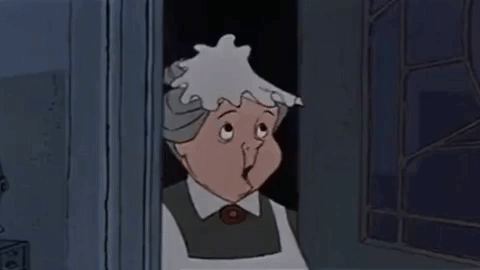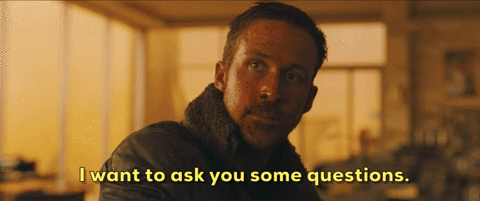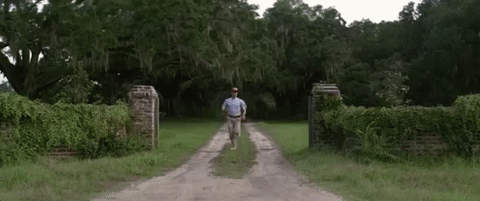How to Spot a Good London Landlord from a Bad One
With properties in London at a premium, there is the powerful temptation to jump head-first into the first good looking property without care or thought as to the consequences.

You don’t need to be a genius to recognise that throwing caution to the wind like a pair of underpants at a nudist colony is a bad idea, especially when it comes to the issue of rental arrangements. Remember that letting contracts are rather serious agreements to sign in to, and not every landlord is going to be interested in your welfare. If you suddenly find that your contract has you over a barrel, or that the landlord somehow things that black mould and rotting mattresses are London’s hottest choice of interior decorating, your options for getting out of your contract are often limited and rather difficult to accomplish.
The most irritating part is that landlords can often get away with some really dodgy practices too, as laws typically favour them over the tenant depending on the contract signed. Assuming there’s even a contract at all.
So, if you’re looking at letting agreements, the best solution is to just avoid bad landlords like the plague. This means you need to learn how to tell them from the good ones.
Are They With a Registered Letting Agency?
We’re not trying to insinuate that independent landlords are going to be dodgy. As with anything else, you’ll great ones and bad ones. However, if your landlord is leasing their property through a registered letting agency, such as the Royal Institution of Chartered Surveyors, or the Association of Residential Letting Agents, then you can be assured that they’re more likely to be on the level.
The whole point of being with a letting agency is that they act as a sort of overseeing body that makes sure the landlord is fulfilling their requirements as the property owner.
Believe it or not, most bad landlords aren’t doing it ‘For The Evulz’, or to make your life miserable. A lot of the time it’s because they really don’t know any better, and they are ignorant as to what exactly is required of them to rent out a property. A landlord who drops in out of the blue for an inspection probably isn’t trying to catch you out – they probably have just never been told that they’re supposed to give adequate notice.

A letting agency avoids this, as landlords who registered through them will be informed in detail about what they can and cannot do, and if they mess up then the tenant can go to the agency to lodge a complaint. That they’re registered means that they’ve also passed a qualifying standard, and they’ve also been trusted by a larger body of letting agencies to do their jobs properly.
What Should You Ask Your Landlord?
Don’t make the mistake of thinking you have to impress the landlord. They’re actually courting you because they need your tenancy to fill an empty property. So do not miss out on the opportunity to grill them for information.
When you get down to it, you want to make sure the property is worth the expense and stress of living there. You want to make sure it’s affordable, safe to live in, comfortable to live in, and that you’re protected in the event of emergencies, such as a fire or a break-in.
When conducting the initial interviews, take the time ask questions such as:
– If the landlord asks for a deposit, is it protected?
– Does the property have fire alarms? (If not, the landlord must provide them)
– How long is the tenancy for? Ideally, you want a landlord who wants a long tenancy.
– Are utilities included in the rent? Who’s responsible for them?
– In the event of a utility breakdown, who do you contact?
– In the event the property becomes unfit to live in, are you still required to pay rent?
If you wanted, you can also ask them for a reference from a previous tenant, although they’re not required to give one out if they lack one or don’t want to. These questions can also help determine whether the landlord in question is one you can trust, as we’ll discuss in more detail below.
Note: Be sure to take our Matching Test with the flatmates or live-in Landlord of the property, to make sure that you are compatible enough to live together.
How Quickly, And How Thoroughly, Do They Answer Questions?
So just to recap; as you’re inspecting a property you’d like to rent, you will probably have questions to ask. Things such as “Does the property have a history of damp?”, “What are the neighbours like?”, “Are pets allowed?”, “Are utilities included?”, and so on and so forth.

If your landlord is a good one, they’ll be quite upfront with the information, answering honestly and quickly. After all, as a tenant, you are entitled to certain information. If it turns out, for example, that your property is directly beside a room in which the occupants are prone to blasting out Black Sabbath from dusk to dawn, you may want to learn of it before you sign anything. A good landlord understands this, and they shouldn’t be too offended by the asking.
If, on the other hand, your prospective landlord seems strangely tight-lipped, vague, or just flat out refuses to respond to questions, something is up. This goes double if the landlord responds aggressively to the line of questioning. This should raise alarm bells. After all, if your landlord is deliberately keeping something from you, or is suddenly extremely touchy about it, why exactly? What are they hiding? What else might they be keeping from you?
At the end of the day, you’ve got to ask yourself this question: do you really trust a landlord who’d knowingly keep you in the dark? Enough to sign a legal contract with them?
What Questions is the Landlord Asking You?
Because you’ll be living in your property, your landlord will likely have questions for you too if they’re going in privately. Pay close attention to the sorts of things they ask you.
Good landlords will often make standard inquiries such as “How long have you had your current job?”, “Do you smoke or drink?”, “Do you own pets?”, or “What are your hobbies and interests?” These are details that can help them gauge how you might behave as a tenant – if you admit you play the drums, for example, they now know you have a hobby that could make lots of noise for the neighbours – and decide whether you’d be a good fit for the property.
Don’t be offended if a landlord asks you questions about how well you’ll look after the property. That’s actually a very good thing! It means they’re concerned about keeping it in a liveable state, which also means they’re probably not intending to milk you for a quick pound and then throw you out of the door when the tenancy is up.
A landlord should also ask you for things such as character references, the details of any guarantors, proof of ID and rights to residency, and a credit check. That’s all pretty standard stuff.
If the questions are personal and not really things the landlord needs to know about, however, consider this a red flag. No landlord should make enquiries about your personal relationships for example, nor should they ask questions about friends or family. Questions about religious beliefs, political leanings, or the like should also never be a topic associated with rent.
They’re none of the landlord’s business, and you don’t have to answer.
Also, if a landlord asks for a non-refundable deposit, a cash deposit without a receipt, or for rent to be paid cash in hand, run. Get out of there. Nothing good will come of that, and you’re basically guaranteed to be screwed over.

What Do Past Tenants Say?
Don’t just investigate the landlord either. If they’ve been around the block a few times, they’ve probably already become familiar with the usual processes behind tenant application and inspection. If they’re crooked, they probably know enough about it that they know what answers to feed you.
One thing they don’t have as much control over is the other tenants, whether current or past.
If there are others in the property you’re looking to rent, be sure to grab them and ask a few questions about how they enjoy living there. Feel free to talk about the house in general. What’s the bathroom like? Is the place easy to clean? What are people’s sleeping schedules?
Keep an ear out for details about the house that the landlord is responsible for. Has there been any damage to the property that has taken ages to be fixed, like a busted window? Are there essential appliances that haven’t been replaced despite no longer operating? Is the landlord easy to contact, and are they happy to be contacted if you have any trouble? Does the landlord make any unexpected visits, or do they visit too frequently?
The current tenants of a property are a fantastic source of intel on the landlord, and will probably be the most upfront and reliable. If you’re looking for somewhere with another tenant already in place to give you the lowdown, let us help you find a flatmate today.



